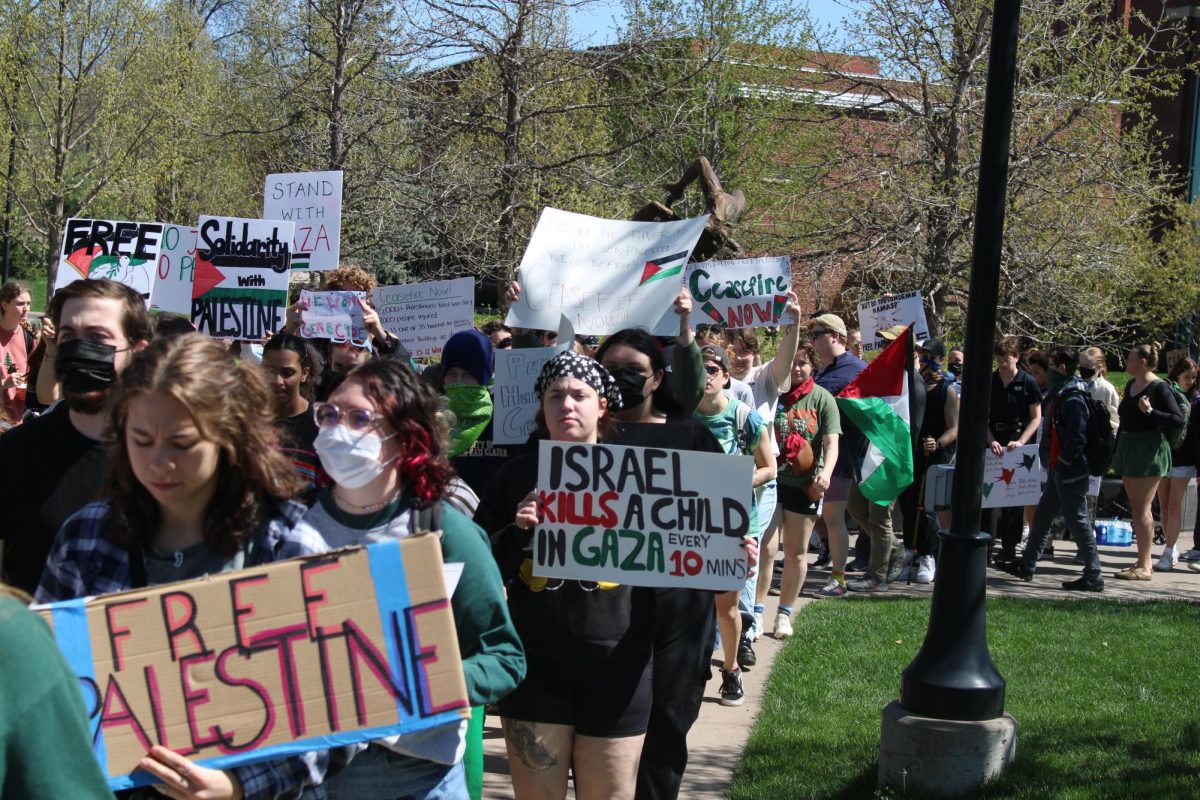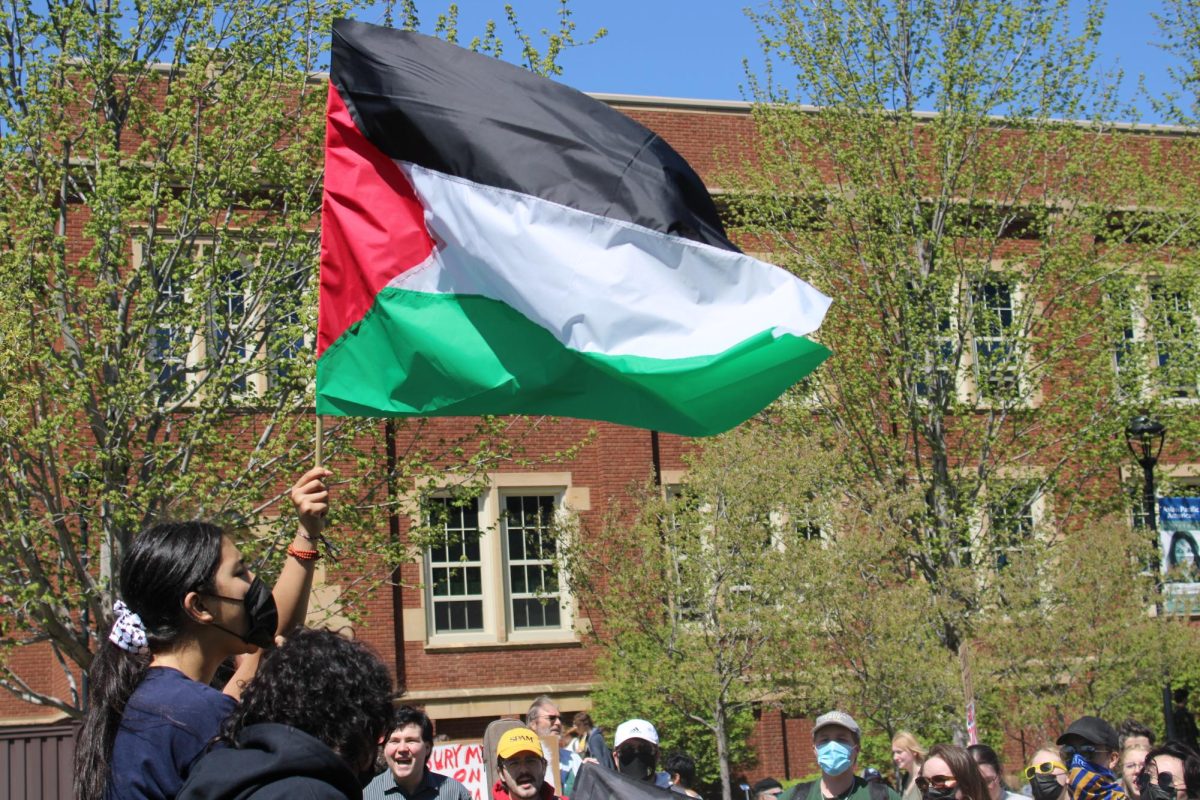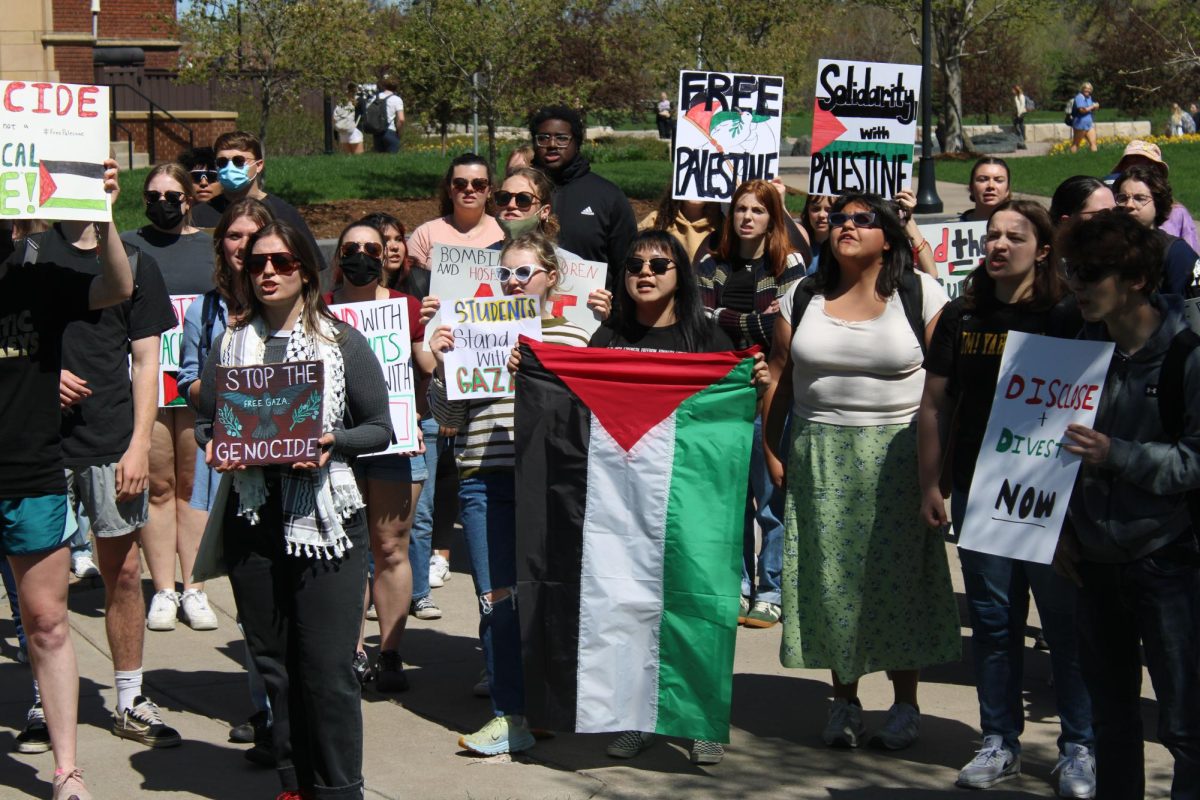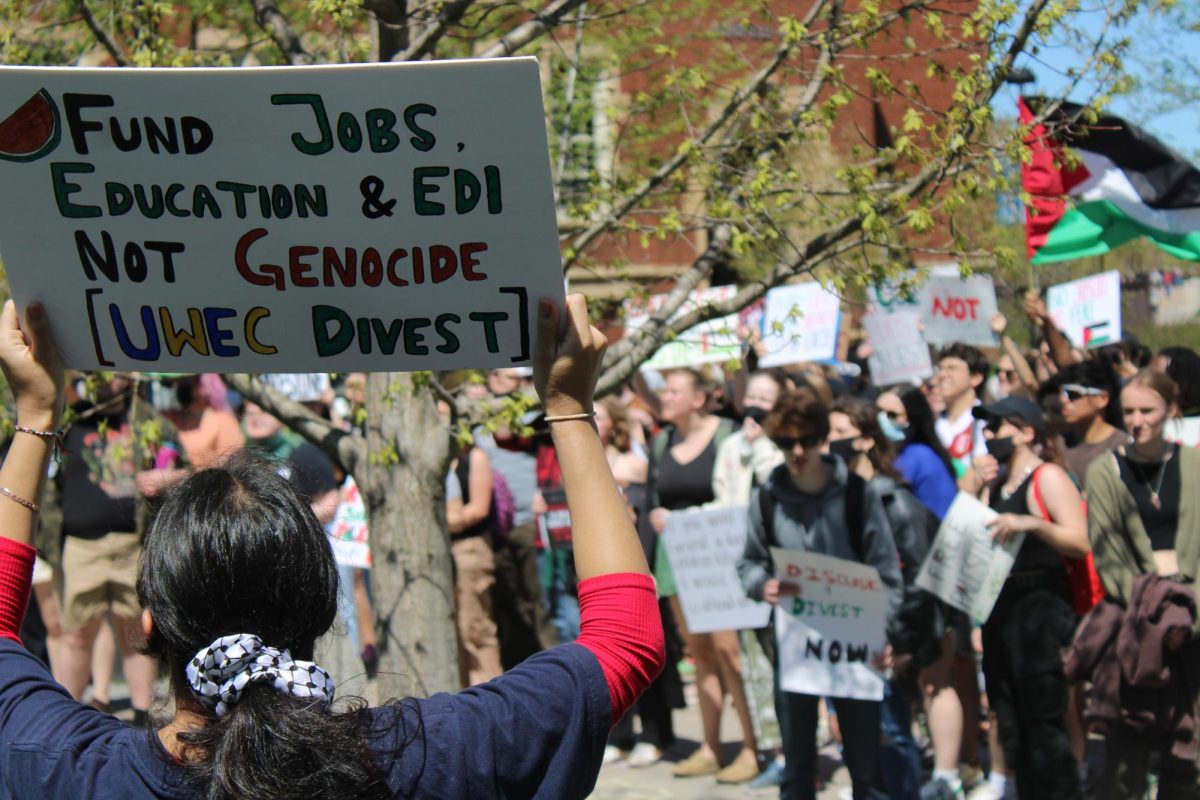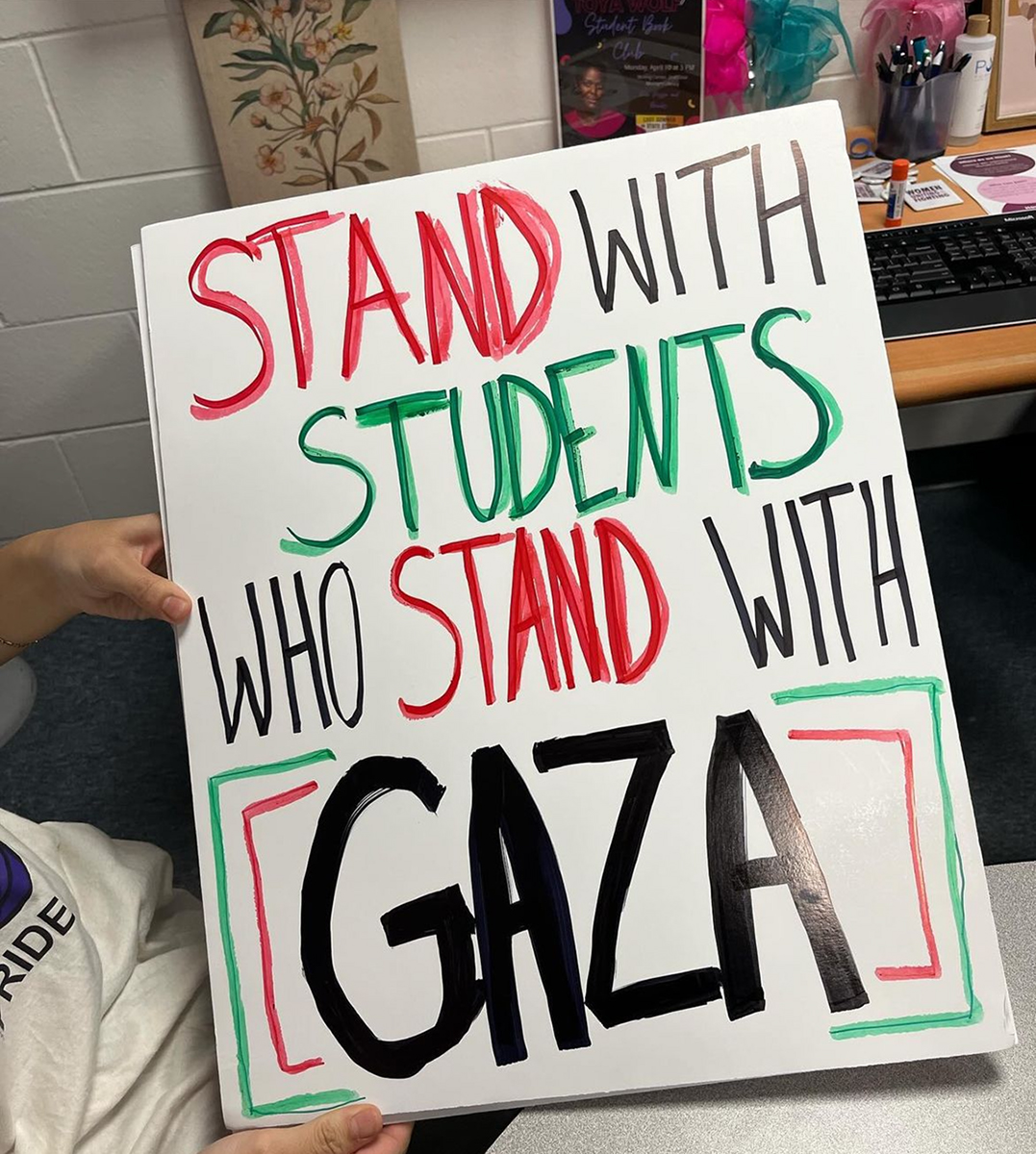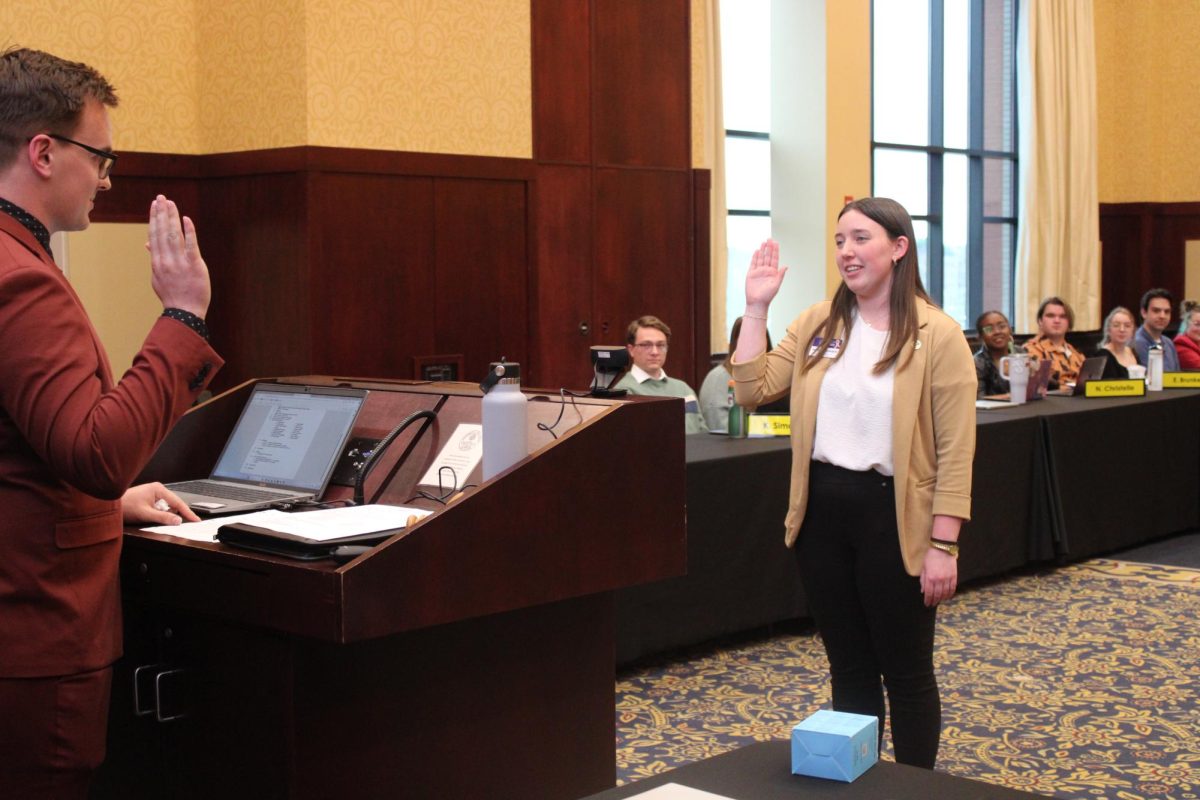 Ben Smidt
Ben SmidtFrom Vietnam to the current “War on Terrorism,” investigative reporter Seymour Hersh has exposed human rights infringements committed by the U.S. government for 50 years.
Hersh spoke at Tuesday night’s Forum presentation in Zorn Arena to an audience that filled about 80 percent of the arena’s seating.
Attendance has been growing at his speeches over the past months, Hersh said, especially at colleges.
“Campuses are getting edgy on the war,” he said.
Hersh’s speech, “Foreign Policy in an Election Year,” addressed the U.S. foreign policy and the recent history of U.S. military incursions worldwide.
Sophomore Liam Robinson said the speech was provocative. He thought the most poignant remark Hersh made was on the political reasoning behind political support of President Bush’s stance on a war with Iraq, he said.
The Democrats don’t want to oppose Bush because elections are soon and voting against anti-terrorism measures wouldn’t go well with voters, Hersh said.
President Bush wanted the authority to bomb Iraq now so he wouldn’t have to ask congress for approval later, Hersh said.
Disappointed with the lack of the opposition from the Democratic Party, Hersh said, “The Democratic Party took a walk on us all, folks.”
Sophomore Jeff Baldovin said he liked Hersh’s balance between commenting on both sides of a conflict as well as his straightforward speaking manner.
Hersh also criticized the president’s handling of the War on Terrorism by recalling a famous quote Bush said after the Sept. 11 attacks.
“You’re either with us or against us,” Bush said when trying to rally international support for the war.
This type of dogma Bush preaches is indicative of a trend of religiously fundamental politicians who let their beliefs influence government policy, Hersh said.
“I’m glad (Hersh) brought up religious fundamentalism in the administration,” said Sara Jensen, a non-traditional student. “I was surprised he brought it up in this relatively fundamental community.”
Discovering the motivation behind a politician’s decisions is an important thing to consider, she said.
The problem with the possibility of war is that America would win again, Hersh said.
“If we go in, we will win,” he said.
After America has completed the war, tribal battles and chaos would result in an Iraq without Saddam Hussein and his military, he said.
The country’s method of fighting its War on Terrorism also is flawed, especially in the aftermath of the fall of the Taliban regime in Afghanistan, Hersh said.
“I don’t know what we’ve accomplished there,” he said.
No roads were built outside of military installations and no monetary support was sent to help the people of Afghanistan rebuild their country, he said.
In relation to the War on Terrorism, Hersh recalled a story he wrote that tested his ethics as a journalist. It was on the case of the 20th hijacker, Zacarias Moussaoui, who was accused of being a part of the plans for the Sept. 11 attacks.
Hersh said it gave him a tough decision when he was writing an article detailing evidence pointing to Moussaoui’s innocence. Hersh said he was tempted to include a paragraph in the article stating he wasn’t a Taliban sympathizer or supporter. He decided not to publish the disclaimer because it would damage the integrity of the story as an account of an innocent man on trial.
Moussaoui’s personal computer and other personal belongings were thoroughly checked by government officials, and no connections were found tying him to the Sept. 11 terrorists, Hersh said.
“The point is we’ve gone backwards,” Hersh said, in reference to the violations of rights by the government.
Infringing on rights in an attempt to prevent terrorism isn’t the solution, he said.
“(The FBI and CIA) can’t save us. They can’t protect us,” he said. “Terrorism is here.”
Jensen attended the speech as an activist for political empowerment and to get the perspective of a well-known journalist.
“Learning more about our foreign policy as academic students should be one of our top goals,” Jensen said.
Because of Hersh’s status as an investigative reporter and his prestige in the field of journalism, she said he was a good choice for The Forum.
“I think that journalism is the most noble profession,” she said. “Where do you find truth other than from an earnest journalist?”

